BONOBO CONSERVATION REVOLUTION

In-Studio @RadioSUZY1 in Bonoboville LAX: Dr. Susan Block, Trixie Plenty, Asher Fire, Candy Moore. Photo: L’Erotique. Insert: “Empty Hands, Open Arms” author Deni Béchard
Length 1:30:05 Date: Nov. 30, 2013
Over a decade and a half ago, shortly after I’d fallen in love-at-first-sight with the amazing “Make-Love-Not-War” bonobos I first saw on a PBS special, one of my viewers recommended a guest for my show who had worked with bonobos and just returned from their native habitat in Congo (then called Zaire). Her name was Sally Jewell Coxe, and in our free-ranging first interview, I could see that she was just as passionate about bonobos as I was. But while I, being a sex therapist, was inspired by their intense sexuality and the “Bonobo Way” of peace through pleasure, Sally’s main focus was and is conservation. Indeed, bonobos—the remarkable great ape species that is over 98% genetically similar to us human “naked apes”–is highly endangered. Their population’s tiny numbers are dwindling fast, due to the recent, rapid encroachment of human civilization, war, mining and, most specifically, poaching. On that show long ago, Sally dreamed of helping to stop the poaching and save the bonobos from imminent extinction.
A lot of people dream on my show. The vast majority of their dreams—whether personal erotic fantasies or soaring visions of changing the world—are light years away from reality. “The ideal is the enemy of the real,” after all, as Capt’n Max likes to say. Yet as the years past, I’ve come to see that Sally’s not just an idealistic dreamer; she’s a boots-on-the-ground—and in the mud!—doer. Her fantasy of creating an organization to help save the bonobos in the Congo rainforest has entered the realm of rough, tough reality. Meeting challenge after seemingly insurmountable challenge, with very little funding, Sally and her staff have built her organization, the Bonobo Conservation Initiative (BCI), into an international powerhouse that’s really making a difference in the future of bonobos, as well as other wild life and human life in the region, becoming the model for a new kind of inclusive, bonoboësque conservation. In fact, BCI is at the vanguard of what I see as a Bonobo Conservation Revolution (BCR).
Reporting from the frontlines of the BCR on this show is my featured guest, award-winning author Deni Béchard. Born in British Columbia, Deni has traveled through over 50 countries as a journalist and seeker of the deeper truths behind the news that are revealed by people’s personal stories. His own personal memoir, Cures for Hunger, which describes growing up with a bank robber for a father, was an IndieNext pick and Amazon Canada’s editor’s pick as best memoir of 2012. His first novel, Vandal Love won the Commonwealth Writers’ Prize and was on Oprah’s Book Club’s summer reading list for 2012. Deni has reported from Iraq and Afghanistan, writing for the LA Times, Outside, Salon and the Harvard Review, among many other publications. Now, in his latest book, published by Milkweed Press, Empty Hands, Open Arms: The Race to Save Bonobos in the Congo and Make Conservation Go Viral, Deni has written about something near and dear to our wild hearts here in Bonoboville.
So we’re delighted to spend most of this show talking with Deni (listen free to the show above) about this moving and informative new book that lovingly details the extraordinary work of BCI which Deni calls “a truly postcolonial model of conservation.” In a world where most conservation efforts fail, it is a model that is sorely needed. With literary eloquence, an eye for nuance and real-life drama, as well as a great deal of hot sweaty research, Deni tells Sally’s story and the fascinating, stirring stories of other BCI staff, including the Congolese trackers and administrators, some of whom were born and raised in the rainforest. These are the men and women who are bringing Sally’s dream—and their own dreams—to life. Traveling from tribal gatherings to palatial meetings, they speak to villagers, politicians and businesspeople about bonobos and the importance of protecting them from looming devastation, as well as listening to the local people to learn what they need so the whole community can help carry the heavy burden of conservation. Because without the support and involvement of the local people, even the most sophisticated, well-funded conservation efforts are doomed to collapse.
According to the latest study conducted by the University of Georgia, University of Maryland, the Wildlife Conservation Society, ICCN (Congolese Wildlife Authority), African Wildlife Foundation, Zoological Society of Milwaukee, World Wildlife Fund, Max Planck Institute, Lukuru Foundation, University of Stirling, Kyoto University, and other groups, now appearing in the December edition of Biodiversity and Conservation, the situation for our kissing cousins in the wild is beyond dire. Using data from nest counts and remote sensing imagery, this detailed range-wide assessment has determined that, mainly due to poaching, as little as 28 percent of the bonobo’s range can be considered safely habitable, and even this small percentage is shrinking fast.
But BCI’s hard, inclusive work puts hope on the jungle’s horizon. In our interview, Deni describes BCI’s visionary but eminently down-to-earth “Bonobo Peace Forest,” a constellation of linked community-based reserves encompassing an area of over 12,000 square miles. Unlike a park, where no humans are supposed to live except the park rangers (though poachers can and do break in illegally), a reserve contains people, even whole villages. This way, nobody gets evicted when the conservationists move in. On the reserve, hunting bonobos is prohibited and policed with a lot more personal vigor than the wildlife is monitored in a park. The idea is for the villagers themselves to protect “their” wild bonobos in the forest surrounding their village. Some are paid BCI staff, and everyone else benefits in myriad other ways.
Sally and her partner Michael Hurley have modeled BCI on bonobo society with a strong focus on taking care of each individual staff member and volunteer, regardless of their roles, and even, sometimes, their relatives. BCI also provides food, medicine and education, paying salaries to the local people who work in the clinics and schools as well as BCI offices and outposts. This way, by helping the bonobos, the villagers can see that the bonobos, through BCI, will help them.
The education flows both ways. Sally speaks fluent Lingala and works closely with tribal chiefs and village mamas, as well as dynamic Congolese conservationists like Albert Lokasola of Kokolopori and André Tusumba of Sankuru. She learns at least as much from the Bongandu people and other Congolese about bonobos and the whole rainforest as she’s learned from the many prominent scientists with whom she’s worked. The bonobos themselves teach her the most. “I learned more about my own nature reading about great apes than in years of psychology courses,” she tells Deni in Empty Hands, Open Arms. “In bonobos, I saw a creature so much like us, one that has learned to cooperate—the closest thing to us on the planet, mirroring a side of ourselves that we often ignore.”
If you’ve ever interacted with bonobos, you know the feeling. As Deni writes, bonobos are “forcing a redefinition of what humanity means.”
So if you’re at all interested in bonobos and/or conservation, this excellent, soul-searching book is a must-read and makes a great holiday gift for any nature lover. Speaking of gifts, now’s a good to time to make a donation to support the vital, urgent efforts of BCI. You can also donate to Lola ya Bonobo the sanctuary run by Claudine André that cares for baby bonobos who have been orphaned when their mothers are shot by poachers, eventually releasing them back into the wild. Give whatever you can afford, and spread the word! The more people we introduce to these amazing apes, the more we’ll be able to do what is necessary to protect them. So tell all your friends and lovers about bonobos, and help make the race to save bonobos go viral!
After we say good-bye to Deni, my in-studio guest, Candy Moore, a telephone sex therapist with the Institute and former stripper who joined us by phone on last Saturday’s show, along with DrSuzy.Tv production assistant Asher Fire and manager Trixie Plenty talk about how moved we are by the interview with Deni, and how excited we are to be a part of the Bonobo Conservation Revolution.
Since it’s Thanksgivukkah weekend and the fourth night of Hanukkah, we light the menorah. But of course, this is Bonoboville, so we keep it kinky with a topless candle-lighting ceremony (courtesy of Asher’s boobs), accompanied by the traditional Hebrew prayers (Asher’s ex-hubby was Jewish)—Amen and Awomen.
I’ve long felt pretty ambivalent about both Thanksgiving, which gluttonously stuffs itself in celebration of the Anglo-European genocide of the Native Americans, and Hanukkah which honors a few Maccabean battle victories in a war they ultimately lost. But being the (ethical) hedonist I am, I love almost any excuse to celebrate, so I choose to redefine many holidays in what I consider to be positive ways. That’s why I asked Deni to talk about his book and BCI’s inspiring work on Thanksgiving weekend, as I’m so very thankful that we still have some wild bonobos on the planet, and so very grateful that we have a chance to join forces to save them from extinction.
For the past few years, I’ve also established a tradition of celebrating Spanksgiving on the Saturday after Thanksgiving. This year’s little spanking session pales in comparison to our walloping, celebrity-studded Spanksgiving 2012 butt-whacking marathon (now playing on DrSuzy.Tv). But with the help of Trixie’s belt-ish JuxLeather bun-slapper, we have a very Slappy Spanksgiving, burnishing several butts (including Candy’s impressively bootilicious candyass) until they’re as red as Santa’s panties, and then continue the spankings into the after-party because, consensually speaking, one good whack deserves another. Btw, spanking isn’t just for humans. I’ve seen one bonobo give another a frisky and/or disciplinary whack on the rear. Go Bonobo {8(:|)
Explore DrSusanBlock.com
Need to talk? Sext? Webcam? Do it here. Have you watched the show? No? Feel the sex. Don’t miss the Forbidden Photographs—Hot Stuff, look at them closely here. Join our private social media Society. Join us live in studio 😊. Go shopping. Gift shop or The Market Place. DrSusanBlock.tv, real sex TV at your toe tips. Sex Clips Anyone? FASHION, we have fashion! We also have politics. Politics? Have you Read the book? No? How about the Speakeasy Journal? Click here. Ok, how about some free sex advice?





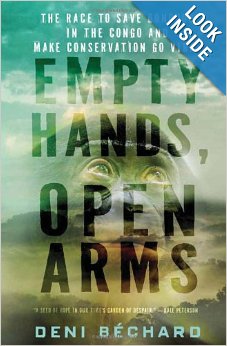




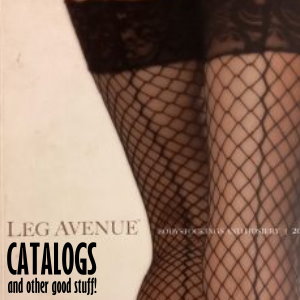


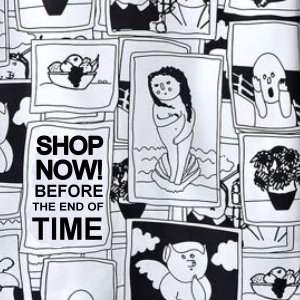

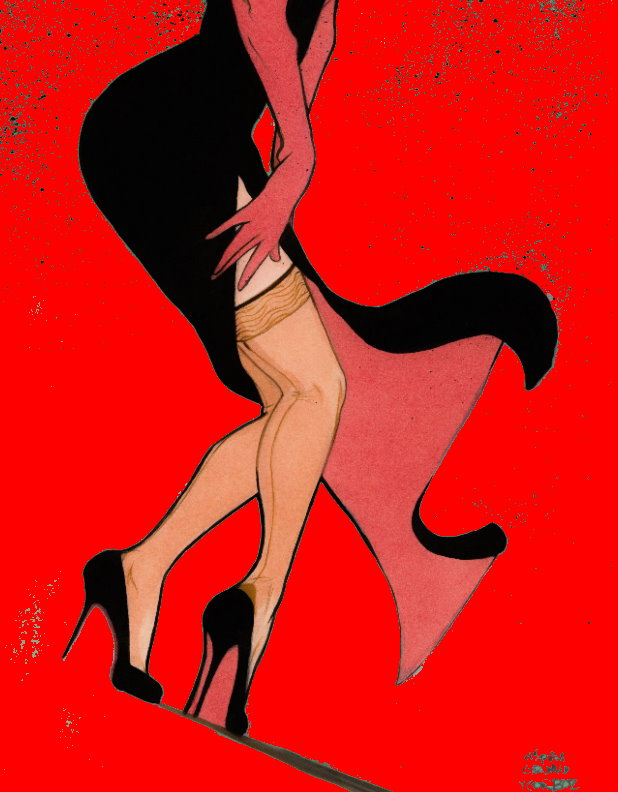
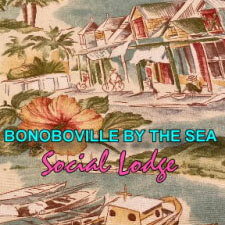















 Get The Bonobo Way
Get The Bonobo Way You Must Read
You Must Read  And Also,
And Also,
12 · 12 · 13 @ 10:49 pm
This is cutting edge conservation and the author is very talented! I am loving this book! Just love it!
12 · 3 · 13 @ 11:40 pm
Thanks for caring, Dr. Susan!
12 · 2 · 13 @ 8:06 pm
Thank you for all of your affirmations and support. I love your title “Bonobo Conservation Revolution”… hits the mark, indeed. Deni is awesome, and so are you : )
12 · 2 · 13 @ 7:31 pm
aww… bonobo is a really cool name I support it 100% lol they are cute as fuck too ;)
12 · 2 · 13 @ 4:08 am
I’ll drink to Happy Spanksgiving!
12 · 2 · 13 @ 3:43 am
50 Women Over 50 Who Have Aged Gracefully @ http://www.huffingtonpost.com/2011/12/19/beautiful-women-over-50_n_1154571.html#s556465&title=Iman_56
I was looking at the picture of you from Saturday’s show and I had just finished reading the above. By far you are one of the most youthful and beautiful women in the world, funny, smart and otherwise the woman of my dreams. Are there more like you? Love Stephan
12 · 2 · 13 @ 3:32 am
Good, good, gooder, great interview Dr. Block and the spanking…Mama Mia, Santo Cielo.
Thanks
12 · 2 · 13 @ 3:28 am
you’re so very sexy, as always.
12 · 2 · 13 @ 1:39 am
I completely agree with Sally Coxe! I’ve learned more about people and relationships living in Bonoboville and watching bonobo videos than I ever learned from all of my psychology classes put together!
And on the Thanksgivukkah front, I’m thankful to have been able to witness my very first Spanksgiving!
12 · 2 · 13 @ 1:08 am
Great show Dr. Suzy, your guest was very informative. I shall go out and buy the book. I couldn’t find it for sale on your site but I found it on Amazon. As always thank you for a most interesting and informative show.